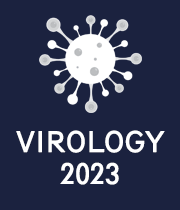Vaccines and Antiviral Agents
The conflict between viral infections and humanity has a long history. The array of weapons at our disposal to combat the viral invasion is constantly growing. The majority of them fall into the vaccine and antiviral categories, and each of these two types of viral disease intervention agents has its own set of benefits and drawbacks. A vaccination is a biological preparation that boosts your immune system against a certain disease. A vaccination usually comprises an agent that looks like a disease-causing bacterium, and it's usually created from weakened or destroyed versions of the microbe, its toxins, or one of its surface proteins. Antiviral medicines are a type of medicine that is used to treat viral infections. Antivirals are used to treat certain viruses in the same way that antibiotics are used to treat bacteria. Antiviral medications, unlike most antibiotics, do not kill their target pathogen; instead, they prevent it from growing.
- Vaccine Research and Development
- Novel Vaccine Design and Technology
- Viral Vaccines
- Antiviral Therapy
- Immune Responses to Vaccines
- Efficacy and Safety of Novel Vaccines and Antivirals

